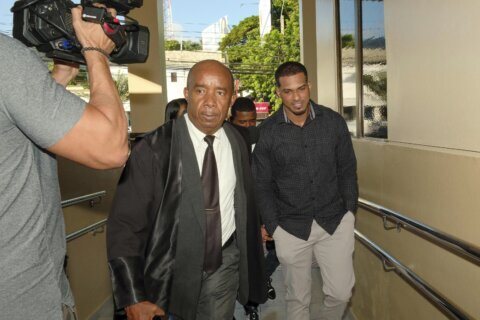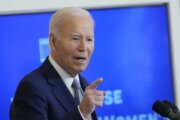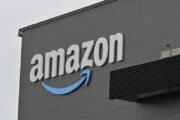DUBAI, United Arab Emirates (AP) — First, it was the banana-randomberry-wheat grass smoothies. Then the cold brew, triple-shot, something-milk lattes, the German-word craft beers, the small-batch, barrel-aged Prohibition cocktails.
Now a new bar in Dubai, the Middle Eastern hub of all things cutting-edge, is serving “gourmet water.”
Thirty varieties of it.
The Aqua Water Bar by Luqel harvests its water the old-fashioned way — from the faucet. The government says tap water is safe to drink and meets international standards, though many Dubai residents prefer bottled water.
Then they use a micro-dosing system designed by the German water filtration company Luqel to inject minerals. They offer to match the mineralization of high-end water brands, catering to all types of water fans, Alpine or Arctic-sourced.
“Our water sommeliers have designed the drinks to suit your needs and mood,” says Roia Jabari, the managing director. “We can give you the perfectly mineralized recipe.”
“Runners Heaven,” which is high in sodium and potassium, is designed for joggers recovering from the scorching desert heat. “Vegan’s Choice” offers minerals that could be lacking in a strictly herbivorous diet. Customers can fill up their bottles with any of the mineral blends for around 50 cents per 500 milliliters (16 fluid ounces) or pay more for mocktails.
It’s not an entirely new concept.
Bottlers have long marketed water extracted from natural springs or remote mountains. Coke and Pepsi got in on the action years ago, adding sweeteners and fizz as they competed with Evian and Perrier, blurring the lines between water and soda.
Such products have grown popular as consumers embrace healthier lifestyles and treat tap water with often justified suspicion.
Bottled water is the most widely consumed beverage in the United States, with the average American drinking 46.5 gallons a year, compared to 36 gallons of soft drinks, according to the Beverage Marketing Corporation, a consulting group. But it’s rare to find a bar that specializes in water, rather than offering it free of charge to patrons who overindulge in alcohol.
A water bar serving what it said was heavily filtered New York City tap water opened in the city’s East Village in 2012, prompting a torrent of criticism. Another briefly opened in Washington, DC in 2019, to less than rave reviews. Neither appears to have stayed open for very long.
But Dubai, an ultra-modern metropolis built on desert sands, could be fertile ground for the trend.
Alcohol is available in bars and clubs in the United Arab Emirates, the federation of seven sheikhdoms that includes Dubai, but the Muslim country has a large population of teetotalers. As a hub of international commerce, it draws the wealthy, fitness-conscious types who underpin the wellness industry.
Jabari insists that the water bar, although frequented by suited businessmen who work in the surrounding Dubai Media City, is not only for wealthy patrons, saying the water, costing 2 dirhams or 54 U.S. cents per 500 milliliter (or around 16.9 fl oz), isn’t too expensive.
In a nod to sustainability, customers can either fill their bottles or purchase reusable ones starting at around $2.50. “One of the things that are like scraping a chalkboard for me is seeing people walking around with plastic bottles,” said Jabari.
The early response appears positive, with the bar boasting a Google rating of 4.6 stars based on around a dozen reviews.
“(The water) was actually different,” said Bilal Rizvi, who stopped in to try it out this week. “It’s pretty good. The turmeric water was a blast.”
Jabari says her favorite drink, the virgin mojito mocktail, is also quite popular. “It’s got a twist of cucumber and lime in it, a hint of sweetness, with the agave and honey.”
The San Diego, California-born interior designer, who has lived in the UAE for 24 years, designed the bar with a water theme. Bubble-shaped lights illuminate the blue and white tones of the décor. In an ode to her heritage, the bar also serves Persian cuisine.
She hopes to expand the business, seeing room for growth in Dubai’s parched neighbors.
“Saudi Arabia is a huge market for us. I believe that Abu Dhabi is our next step.”
Copyright © 2024 The Associated Press. All rights reserved. This material may not be published, broadcast, written or redistributed.





